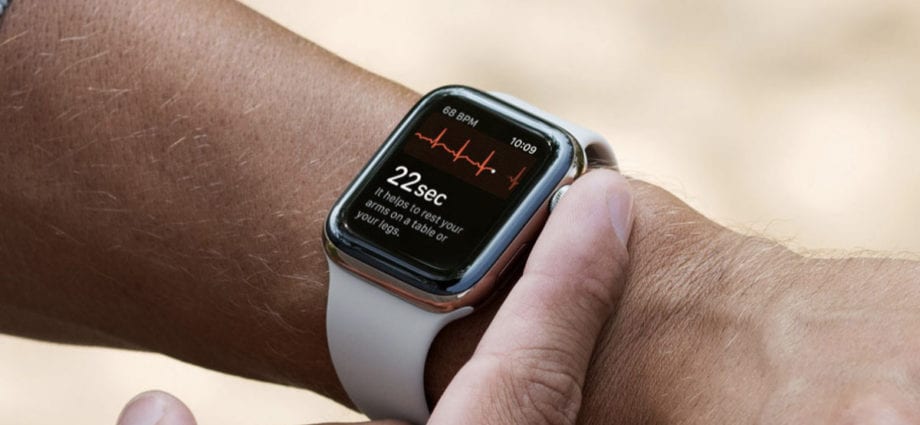Coming soon company will finally start selling its watches, which were announced almost a year ago. I love Apple for the fact that it has already made my life several times more efficient, more interesting and easier. And I look forward to this watch with a childish impatience.
When Apple announced last year that it was developing watches that had specific medical functions, it was clear that the company was eyeing the healthcare industry. Apple’s recently announced ResearchKit software environment shows that they are going even further: they want to transform the pharmaceutical industry by changing the way they conduct clinical research.
Apple is not alone. The tech industry sees medicine as the next frontier for growth. Google, Microsoft, Samsung, and hundreds of startups see the potential of this market – and have big plans. They are about to revolutionize healthcare.
Soon we will have sensors that monitor virtually every aspect of our body’s functioning, inside and out. They will be embedded in watches, patches, clothing, and contact lenses. They will be in toothbrushes, toilets and showers. They will be in smart pills that we swallow. Data from these devices will be uploaded to cloud platforms such as Apple’s HealthKit.
AI-powered apps will constantly monitor our medical data, predicting the development of diseases and warning us when there is a danger of illness. They will tell us what medications to take and how we should improve our lifestyle and change our habits. For example, Watson, a technology developed by IBM, is already able to diagnose cancer more accurately than conventional doctors. Soon she will make various medical diagnoses more successful than people.
A key innovation announced by Apple is ResearchKit, a platform for application developers that allows you to collect and download data from patients with certain diseases. Our smartphones already track our activity level, lifestyle and habits. They know where we are going, how fast we are going and when we sleep. Some smartphone apps are already trying to gauge our emotions and health based on this information; to clarify the diagnosis, they can ask us questions.
ResearchKit apps allow you to continuously monitor symptoms and drug reactions. Clinical trials around the world today involve relatively few patients, and pharmaceutical companies sometimes choose to ignore information that is not beneficial to them. The data collected from Apple devices will be used to accurately analyze which medications a patient has taken to determine which drugs actually worked, which triggered adverse reactions and new symptoms, and which had both.
Most encouragingly, clinical trials will continue – they will not stop once the drugs are approved.
Apple has already developed five apps that target some of the most common health problems: diabetes, asthma, Parkinson’s, cardiovascular disease and breast cancer. A Parkinson’s app, for example, can measure the degree of hand shake through the iPhone’s touchscreen; trembling in your voice using a microphone; gait when the device is with the patient.
A health revolution is just around the corner, fueled by genomics data, which is becoming available as the rapidly falling cost of DNA sequencing approaches the cost of conventional medical testing. With an understanding of the relationship between genes, habits and disease – facilitated by new devices – we are increasingly moving closer to the era of precision medicine, where the prevention and treatment of disease will be based on information about the genes, environment and lifestyles of people.
Google and Amazon are one step ahead of Apple in data collection today, offering storage for DNA information. Google actually excelled. The company announced last year that it is working on contact lenses that can measure glucose levels in a person’s tear fluid and transmit that data through an antenna that is smaller than a human hair. They are developing nanoparticles that combine magnetic material with antibodies or proteins that can detect cancer cells and other molecules inside the body and transmit information to a special computer on the wrist. In addition, Google is committed to controlling the aging process. In 2013, she made a significant investment in a company called Calico to research diseases that affect the elderly, such as neurodegenerative diseases and cancer. Their goal is to learn everything about aging and ultimately prolong a person’s life. Another front of Google’s work is studying the work of the human brain. One of the company’s leading scientists, Ray Kurzweil, brings to life the theory of intelligence, as outlined in his book, How to Create a Mind. He wants to boost our intelligence with technology and back up the brain’s memory on the cloud. Another book by Ray about longevity, where he is a co-author, and which I have recommended many times – Transcend: Nine Steps for Living Well Forever, will be released very soon in Russian.
Perhaps in the past, advances in medicine were not very impressive because the process was too slow due to the nature of the health system itself: it was not health-oriented – it was aimed at helping the sick. The reason is that doctors, hospitals and pharmaceutical companies only profit when we get sick; they are not rewarded for protecting our health. The IT industry is planning to change this situation.
באַזירט:
סינגולאַריטי כאַב










